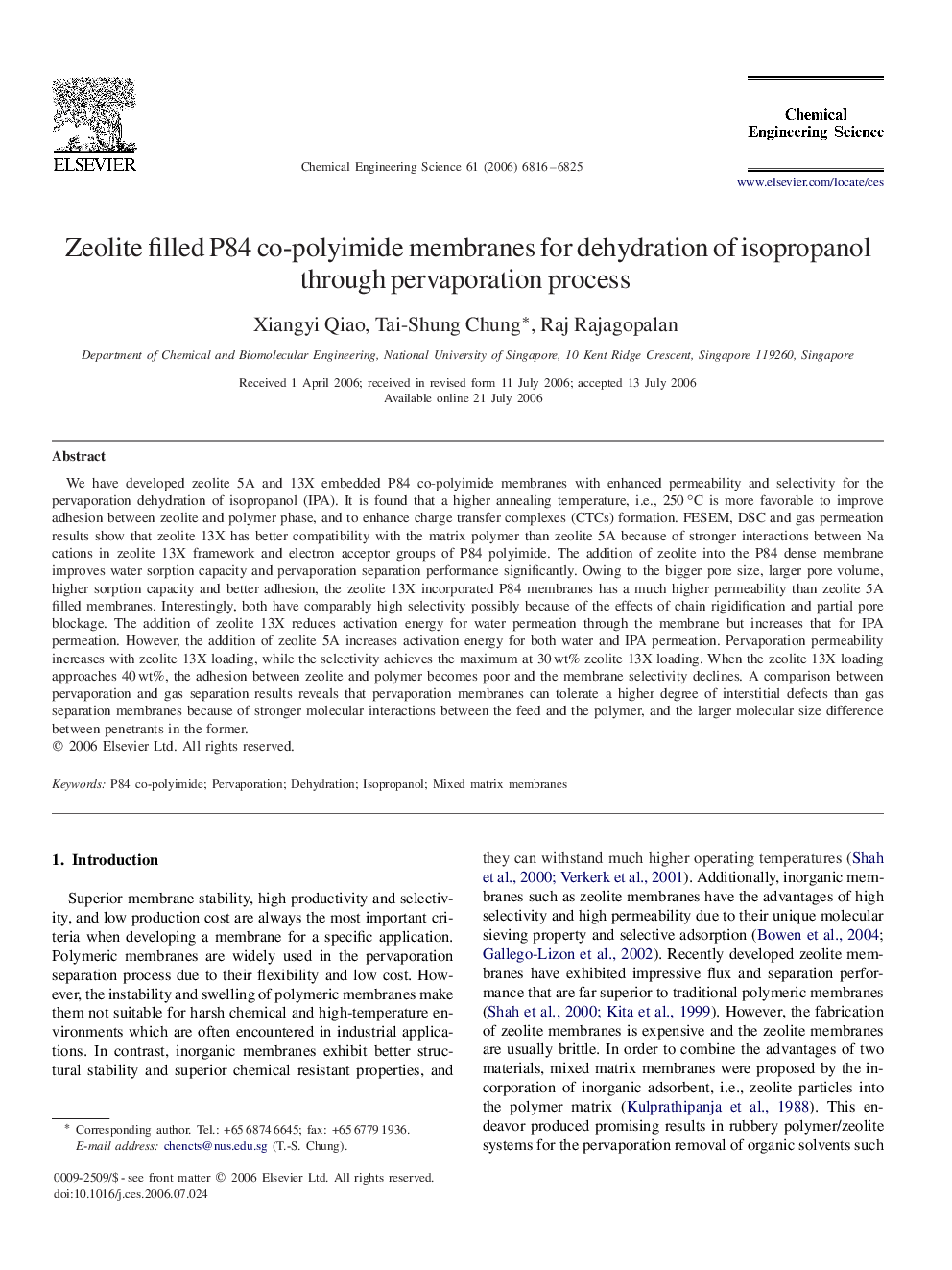| کد مقاله | کد نشریه | سال انتشار | مقاله انگلیسی | نسخه تمام متن |
|---|---|---|---|---|
| 159483 | 457039 | 2006 | 10 صفحه PDF | دانلود رایگان |

We have developed zeolite 5A and 13X embedded P84 co-polyimide membranes with enhanced permeability and selectivity for the pervaporation dehydration of isopropanol (IPA). It is found that a higher annealing temperature, i.e., 250∘C is more favorable to improve adhesion between zeolite and polymer phase, and to enhance charge transfer complexes (CTCs) formation. FESEM, DSC and gas permeation results show that zeolite 13X has better compatibility with the matrix polymer than zeolite 5A because of stronger interactions between Na cations in zeolite 13X framework and electron acceptor groups of P84 polyimide. The addition of zeolite into the P84 dense membrane improves water sorption capacity and pervaporation separation performance significantly. Owing to the bigger pore size, larger pore volume, higher sorption capacity and better adhesion, the zeolite 13X incorporated P84 membranes has a much higher permeability than zeolite 5A filled membranes. Interestingly, both have comparably high selectivity possibly because of the effects of chain rigidification and partial pore blockage. The addition of zeolite 13X reduces activation energy for water permeation through the membrane but increases that for IPA permeation. However, the addition of zeolite 5A increases activation energy for both water and IPA permeation. Pervaporation permeability increases with zeolite 13X loading, while the selectivity achieves the maximum at 30 wt% zeolite 13X loading. When the zeolite 13X loading approaches 40 wt%, the adhesion between zeolite and polymer becomes poor and the membrane selectivity declines. A comparison between pervaporation and gas separation results reveals that pervaporation membranes can tolerate a higher degree of interstitial defects than gas separation membranes because of stronger molecular interactions between the feed and the polymer, and the larger molecular size difference between penetrants in the former.
Journal: Chemical Engineering Science - Volume 61, Issue 20, October 2006, Pages 6816–6825